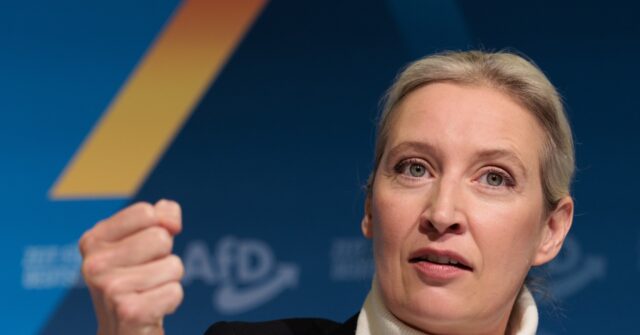In the lead-up to the February elections in Germany, Alice Weidel, the leader of the anti-mass migration Alternative for Germany (AfD) party, has made significant gains in polls, positioning herself as a leading candidate for the chancellorship. A recent survey by INSA for BILD indicates Weidel’s popularity has increased to 24%, surpassing Friedrich Merz of the centrist Christian Democratic Union (CDU), who has fallen to 20%. This shift suggests a growing voter inclination towards the AfD as concerns over immigration and related incidents gain prominence in political discourse. Meanwhile, current Chancellor Olaf Scholz of the leftist Social Democrat Party (SPD) sits at 15%, with Economic Minister Robert Habeck from the Greens closely following at 14%.
The context of the rising popularity of Weidel and the AfD is particularly critical in light of a tragic Christmas market attack that occurred shortly before the polling, resulting in at least five fatalities and over 200 injuries. The alleged assailant, a migrant from Saudi Arabia who had obtained asylum in 2016, adds a layer of complexity to the political narrative, particularly since the asylum was granted during Angela Merkel’s CDU administration. The date of the attack coincided with polling, potentially influencing voter perceptions and sentiments towards the AfD’s anti-immigration platform. Weidel’s rise correlates with a public anxiety that may be amplified by such incidents, positioning her party’s message in stark contrast to the incumbent government’s policies.
Adding to the controversy surrounding the elections, Elon Musk, the owner of platform X, has publicly endorsed the AfD, prompting accusations of foreign interference in German politics from leftist factions and EU officials. Matthias Miersch, general secretary of the SPD, has emphasized the need to protect German elections from external influences, stating a clear opposition to Musk’s comments. The hostility towards Musk’s statement reveals underlying tensions regarding how international figures engage with national political issues, particularly from those on the left who suspect a threat to democratic integrity. In contrast, the German government has maintained a stance in favor of free speech, declining to criticize Musk’s remarks, which creates a split in the political response to outside influence.
The electoral dynamics indicate that despite Weidel and the AfD’s surging popularity, significant obstacles remain for the party’s entry into government. All other political factions have agreed to a “cordon sanitaire” against cooperating with the AfD, creating a challenging environment for coalition formation post-election. This political isolation means that even if the AfD performs well at the ballot box, the likelihood of wielding real power could remain out of reach. Observers speculate that the CDU/CSU may find it necessary to align with the leftist SPD to form a governing coalition, which could result in the CDU making concessions on key policy issues such as migration, economic, and energy strategies—essentially diluting their centrist positions.
This election scenario reveals not just the shifting voter sentiments in Germany but also encapsulates a broader confrontation between progressive and conservative forces in the political landscape. The rise of populist parties like the AfD has spurred traditional parties to reassess their platforms and methodologies, particularly in how they address concerns that resonate with the electorate. The reluctance of other parties to engage with the AfD may stem from fears of legitimizing a party that many see as extreme; however, it may inadvertently strengthen the AfD narrative that they are the only representation for disillusioned voters.
Ultimately, the February elections are poised to be a significant reflection of current socio-political sentiments in Germany, as issues around immigration, security, and foreign influence converge with evolving voter preferences. The unfolding political landscape suggests meaningful implications for Germany’s future governance and the broader EU response to rising populist challenges. As the nation grapples with these tensions, the outcome of the elections will likely reverberate beyond its borders, influencing global discussions about migration policies, democratic integrity, and the rise of alternative political movements.

